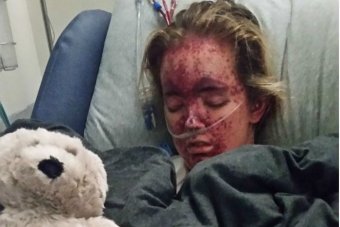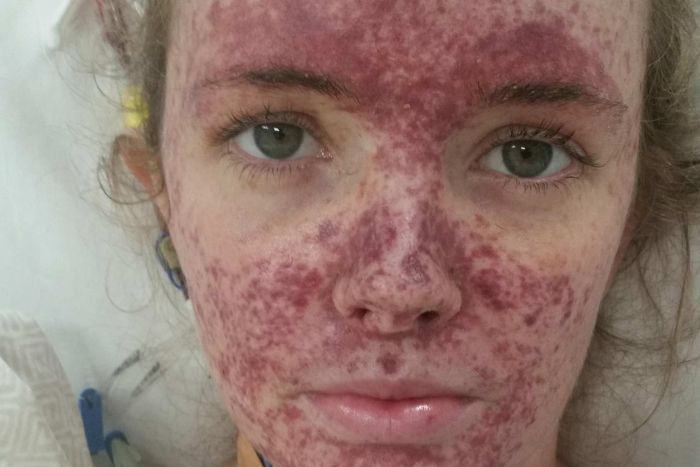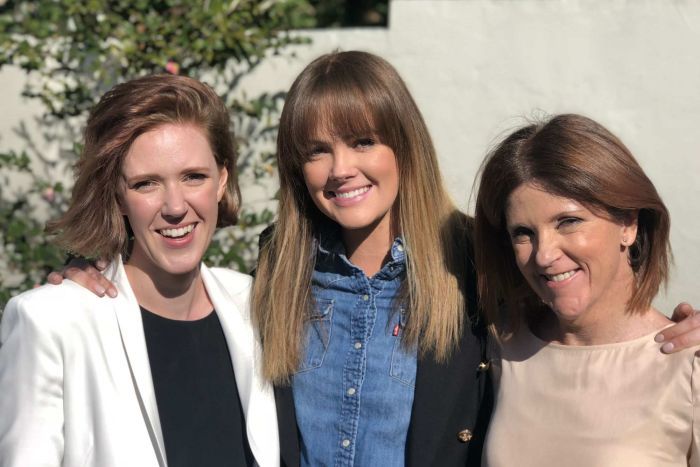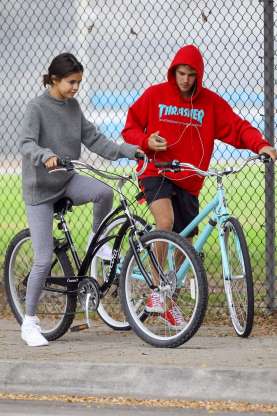On Christmas night in 2017, Lily O’Connell went to bed thinking she had the flu.
Forty-five minutes later, she was rushed to hospital and diagnosed with the Meningococcal W strain.
“I turned the light on and I saw the rash on her face,” Lily’s mum Steph O’Connell said.
“It was underneath her skin.”
The 23-year-old was in St Vincent’s Hospital Intensive Care Unit for eight days and in hospital for three weeks.
Lily credits her survival of the deadly disease to her mother’s quick thinking.
“Thankfully mum had a sixth sense,” she said.
“I think that’s what saved me, that fast response.”
Lily said at that stage every second counted.
Later on I found out that I was pretty much 30 minutes from hit and miss [or] calling it quits for good which is terrifying,” she said.
Her mother said it was a time of horrific uncertainty.
“There is always that thought in your mind, this isn’t really happening, this can’t be happening, how did this happen, how could I not know, wasn’t she vaccinated?” Steph said.
Students at risk
Like many people her age, Lily was vaccinated for the Meningococcal C strain at school, but like most hadn’t received a W strain injection.
Similar cases to Lily’s have led to a quadrupling of the number of people being diagnosed with the W strain in recent years.
New South Wales Premier Gladys Berejiklian today announced the Meningococcal vaccination program, immunising school students in years 10 and 11, will continue to be rolled out in an attempt to battle that rise in cases.
“We noticed a quadrupling of cases between 2014 and 2016 which is why we started the program last year and this year we’re extending it,” Ms Berejiklian said.
“We’re trying to get this rolled out to as many people as possible, if we need to do more we will,” she said.
Fifteen to 19-year-olds, who have been identified as the most at risk group, will receive the four-in-one vaccine covering the A, C, W and Y strains.
“What we’re doing is covering people who are most vulnerable,” Ms Berejiklian said.
“The Health Department has identified in consultation with experts around the commonwealth that those most vulnerable are teenagers, so if we immunise them when they’re teenagers they’re least likely to get it and also least likely to spread it,” she said.
Lasting effects
Despite now being in recovery, every two days Lily has to go to hospital for five hours of dialysis, because of the damage to her kidney.
Luckily her big sister Grace O’Connell is donating a kidney to her later this month.
“It’s something that I jump at doing, she’s my sister and if this gives her the best possible quality of life after what we’ve been through, then that’s what matters to me most in the world,” Grace said.
Lily said more people need to understand they aren’t immunised against all Meningococcal strains.
She said that knowledge can be the difference between life and death.
“I know it’s expensive but it’s a small price to pay,” Lily said.
“There’s a gap between all the immunity in the community.
“Because of that gap, we are all vulnerable,” she said.









